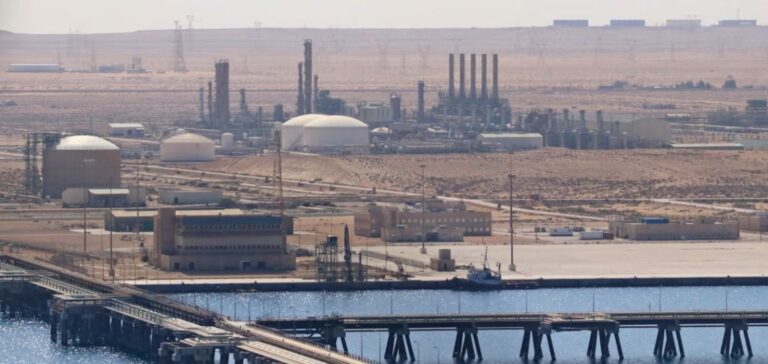The authorities in eastern Libya, under the influence of Khalifa Haftar, ordered the closure of all oil fields and terminals under their control, thus suspending national production.
This decision comes in direct response to the Tripoli government’s attempt to replace the governor of the Central Bank of Libya (BCL), Siddiq al-Kabir, with Mohamed Abdul Salam al-Shukri. The closure of the fields, including the Sharara field with its 300,000 barrels per day (b/d), marks a significant escalation in the conflict.
Oil production, which had reached 1.15 million b/d by July 2024, is now seriously compromised.
The government in the east is invoking a state of force majeure to justify the suspension of activities in the oil crescent, as well as in the southern and south-eastern regions.
Immediate impact on energy markets
The suspension of Libyan exports is having a direct impact on the Mediterranean oil market, particularly in North-Western Europe, where Libyan crude is highly prized.
Forecasts of a production recovery to 2 million b/d over the next five years have been called into question.
The consequences of this stalemate are immediately felt on the markets, where investors are reacting to this new instability.
The BCL’s central role in the redistribution of oil revenues places it at the heart of Libya’s power struggles.
Control of oil revenues, essential to the Libyan economy, has become a strategic lever in the conflict between rival factions.
Tripoli’s attempts to replace al-Kabir have exacerbated tensions, triggering militia mobilizations and increased militarization around financial institutions.
Consequences for players in the oil industry
Companies operating in Libya are facing a new wave of uncertainty.
The threat of a total production shutdown is undermining plans for expansion and investment in the country.
The tense relations between the political players, notably Dbeibah, Haftar, Kabir, and NOC Chairman Farhat Bengdara, further complicate the situation.
Previous blockades orchestrated by Haftar had already reduced production to critical levels, and this new episode of tension could lead to even more severe disruptions.
Industry professionals are closely monitoring these developments, aware that any prolongation of the crisis could have lasting repercussions on regional stability and global energy supplies.





















